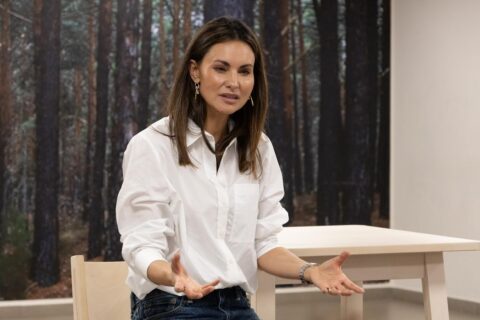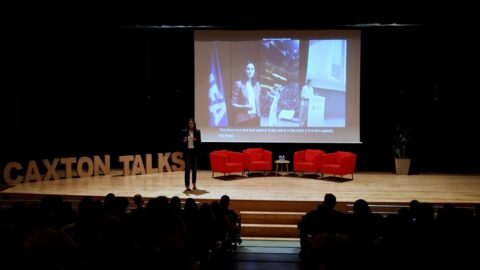The expert in neuroscience Ana Ibáñez, CEO of MindStudio, gave a talk for this British school’s 8th annual Forum for Innovation in Education where she shared methods and practical tools to gain a better understanding of the young person’s brain.

“Education can no longer be limited to simply transmitting academic knowledge.” This was one of the key ideas that Ana Ibáñez shared in her conference that brought together families, teachers, and education experts to reflect on how innovations in neuroscience offer us a greater understanding of the brain and allow us to act to improve its performance.
In a congenial and inspiring manner, the founder of MindStudio, a pioneering centre in applying neuroscience to personal and educational development, defended an idea as simple as it is transformative: “We cannot continue to educate brains as if they were all the same. Each child has certain kinds of intelligence that are more developed than others, their own pace, their own way of learning, and their emotional world. Understanding that is the first step to properly support them.”
Throughout her talk, she encouraged families and teachers to look beyond academic results, opting for an education that enhances creativity, self-esteem, and emotional management in children. In her words: “If there isn’t effort, there’s no enjoyment. But if everything is effort and constant evaluation, there is no space for learning to become something meaningful. We have to help children enjoy the learning process; to find a balance between demand and enjoyment, because that is when they will achieve their maximum potential.”
Emotions: The Foundation of Lasting Learning
The speaker and author of the book Sorprende a tu mente also insisted that emotional development cannot be separated from cognitive development. Neuroscience has shown that the brain needs to feel safe and motivated to learn effectively. “It is important that there are spaces for students to be able to learn without being evaluated, where they can be free to explore and make mistakes without feeling judged.” These experiences, she explained, activate areas of the brain related to pleasure, motivation, and creativity, which are fundamental for lasting learning.
She also focused on the impact that negative emotions, such as frustration or fear of error, have when they are not properly managed. “When a child feels constantly assessed, they become blocked. Their brain enters defence mode, and there they cannot learn or grow.” Therefore, she urged the audience to take care when creating learning environments, both at home and at school, and to take a more empathetic and flexible approach. At one point in the conference, she also emphasised the importance of using play as a tool to unlock skills and connect with intrinsic motivation: “Designing games can be an activity where young children not only have fun, but also activate complex skills: critical thinking, logic, teamwork, error management… and, moreover, they enjoy it.” Ibáñez closed her speech by highlighting the value of these educational forums: “Thank you for making me feel part of something so beautiful. It’s very encouraging to see so many people interested in educating from the brain and from the heart.”
Meeting with Students
During her visit to the school, the neuroscientist also found time to hold a very enriching dialogue with a group of secondary school students who had the chance to ask her questions to help them improve their performance and concentration in everyday activities such as sports or exam preparation. They spent nearly an hour with her, receiving advice and learning to use specific tools to manage situations that can cause them to feel ill at ease, anxious or frustrated, as well as to help them strengthen their resilience and face the challenges that come their way with confidence.
With this kind of educational programme, Caxton College reaffirms its commitment to an education of excellence that builds bridges between science, the humanities and the day-to-day lives of families.

